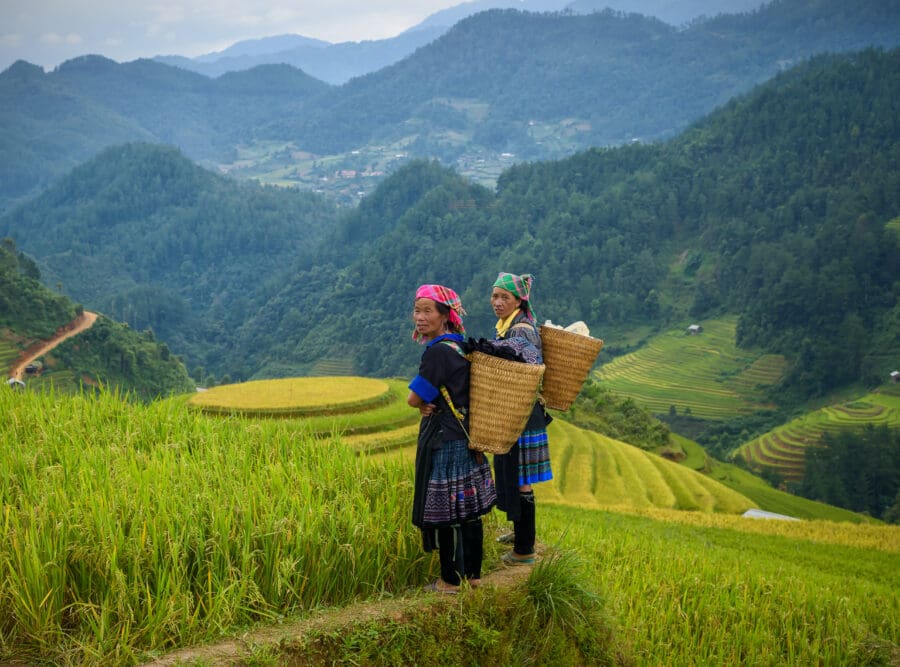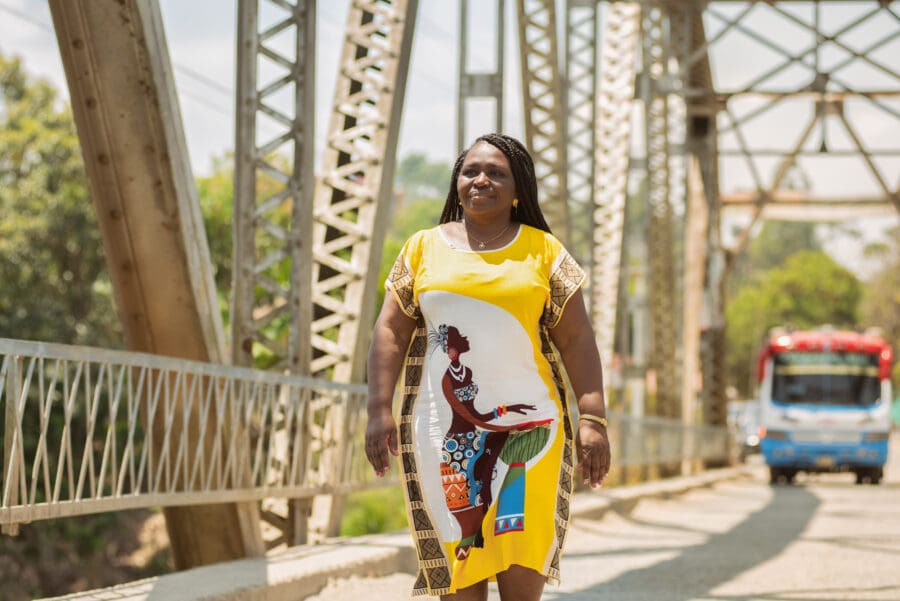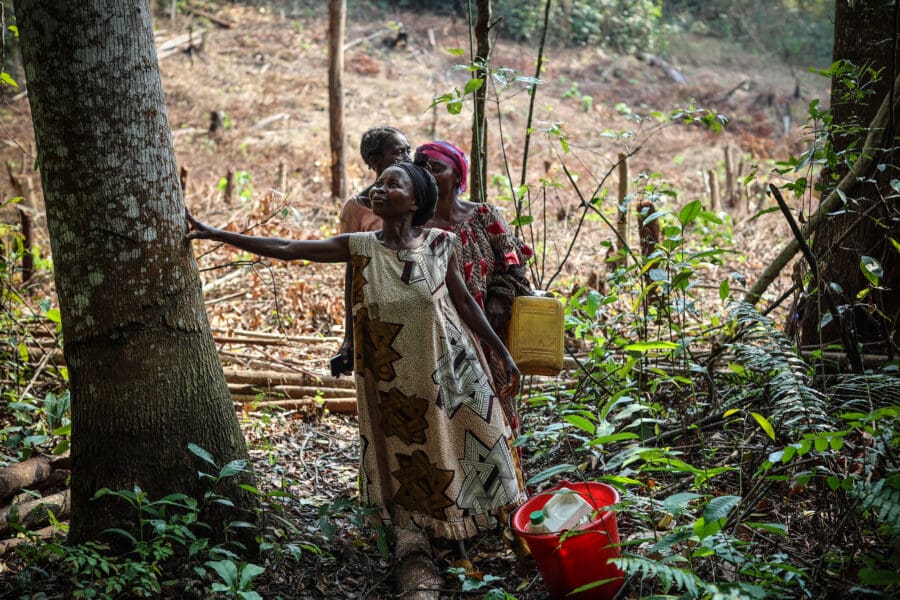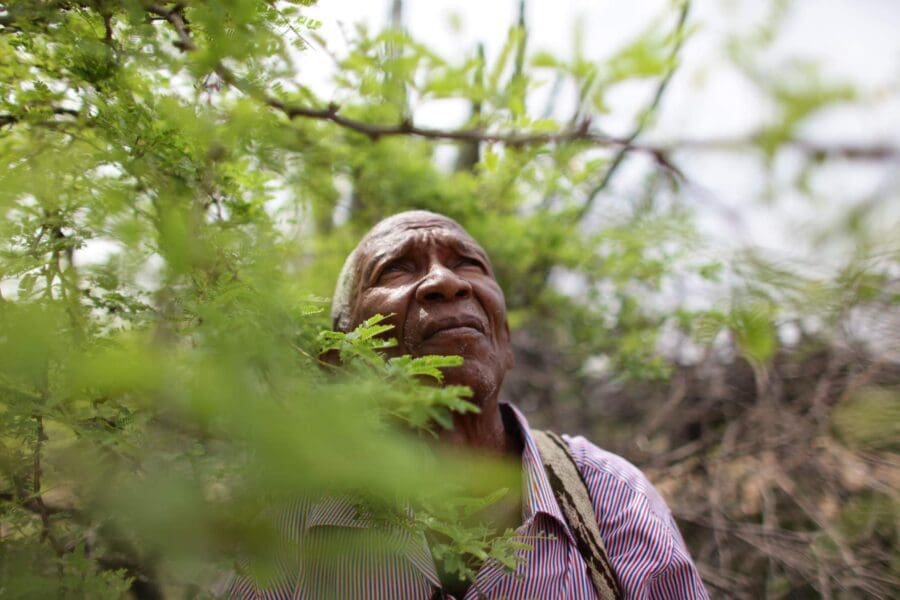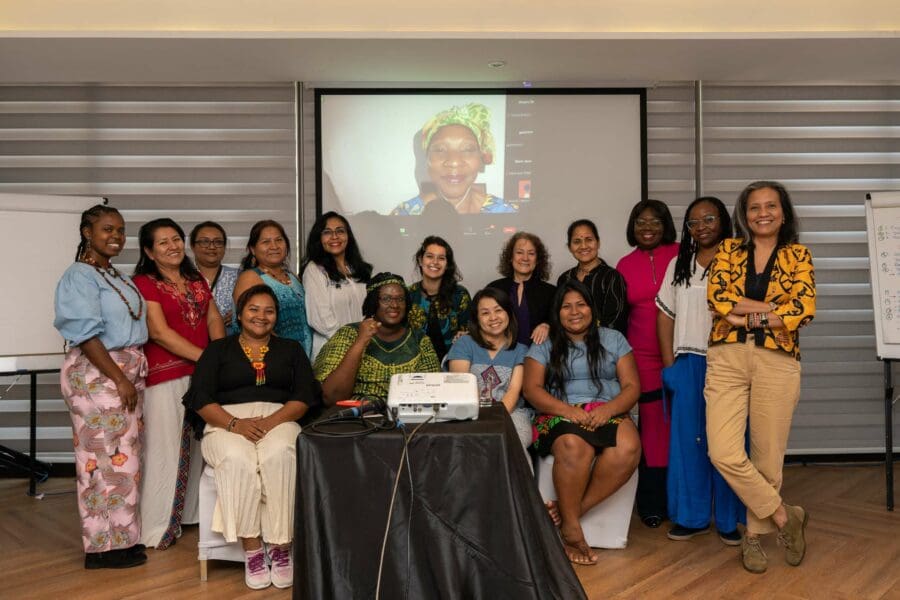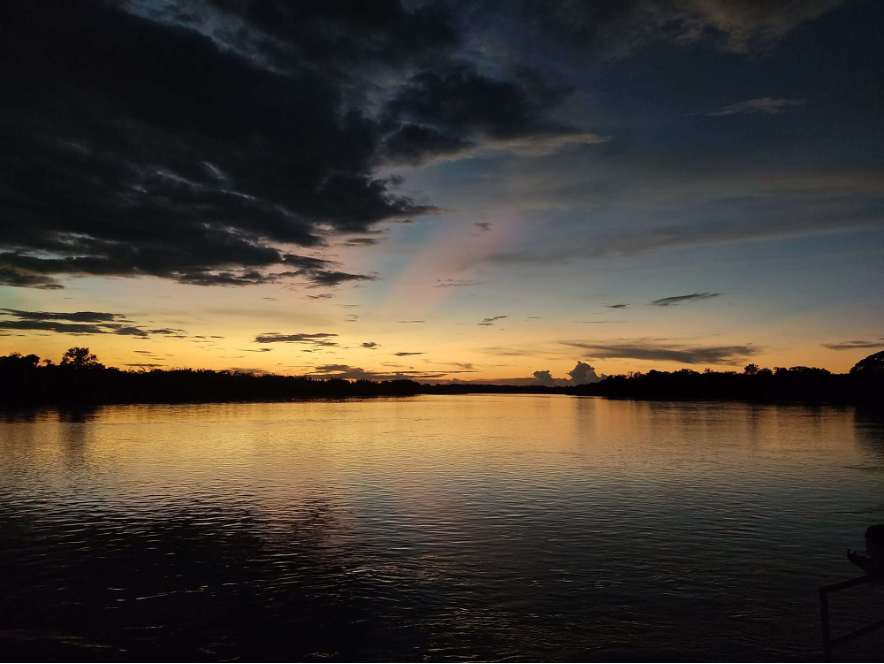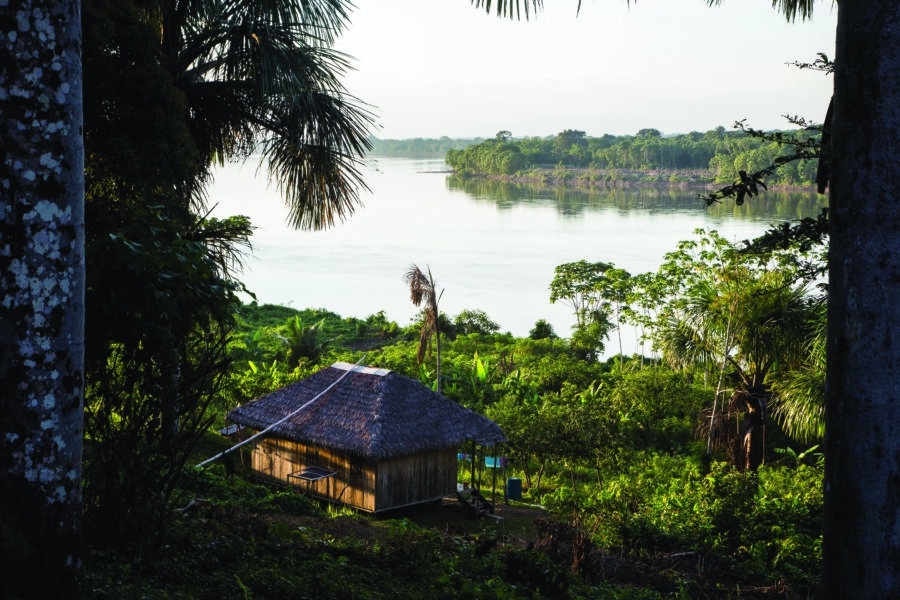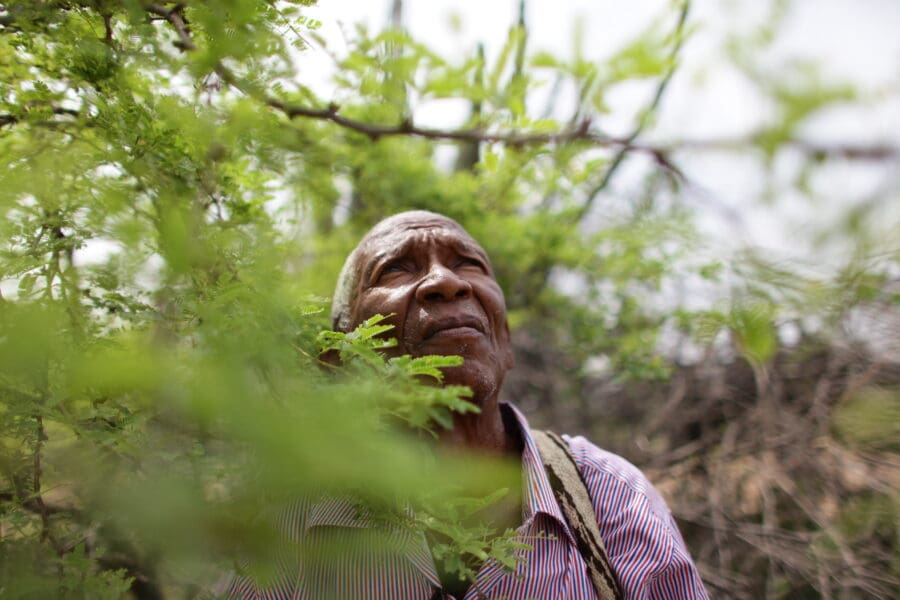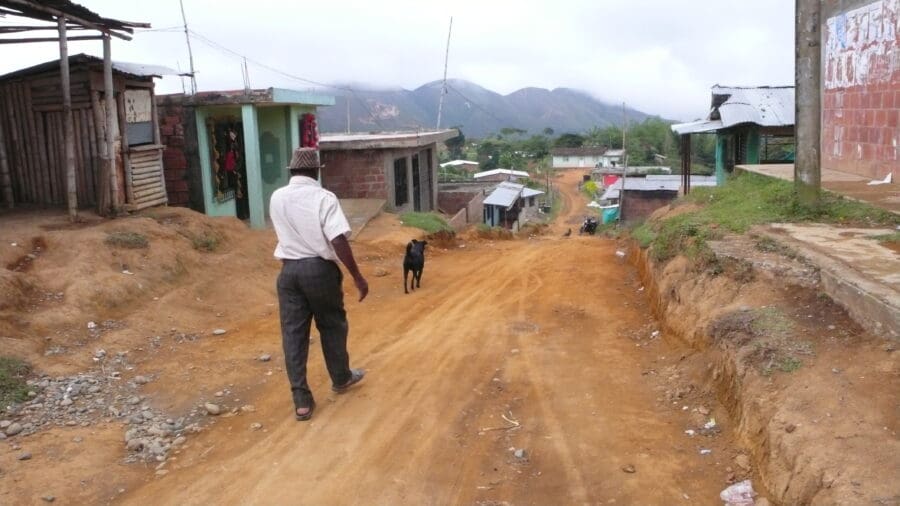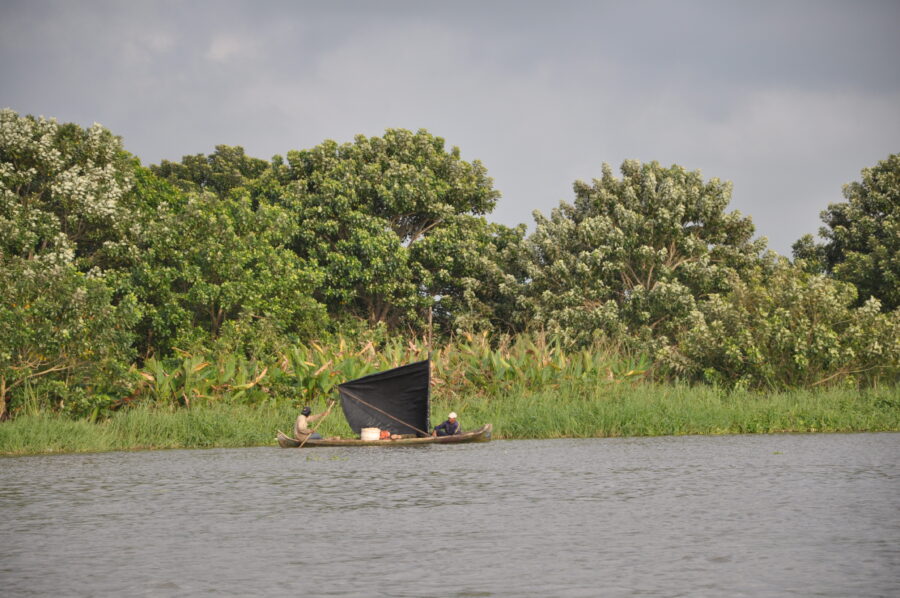Have you ever wondered why people experiencing poverty in rural areas of the Global South tend to have insecure land tenure? If you have, you may have rightly concluded that the greed of powerful actors and colonialism are an important part of the story. But this barely begins to describe the forces that have strengthened and weakened tenure security across time for those with little voice and power.
This is the story of the president of the Association of Afro-descendant Women of Northern Cauca, Colombia, who faced the threats of armed conflict to fight for the rights of Afro-descendant women.
Building on the State of Funding report published in April 2024, this blog post shares important updates on finance for Indigenous Peoples', Afro-descendant Peoples', and local communities' tenure and forest guardianship and examples of how direct funding is already driving important progress in tropical forests and other key ecosystems.
A declaration released at a press briefing on June 15 highlights significant overlap between lands claimed by Afro-descendant Peoples in Latin America and the Caribbean and biodiversity hotspots; calling for the inclusion of the term Afro-descendants in the Convention on Biological Diversity (CBD) and UN Framework Convention on Climate Change (UNFCCC).
Despite constant threats from extractive activities and drug trafficking, community councils of Afro-descendant Peoples from Buenaventura and Northern Cauca have successfully conserved the forest. This is their extraordinary story.
Members of the new network agree to create more documentation on land rights and governance processes for Indigenous, Afro-descendant, and local community women; call for strengthening advocacy capacity.
The socio-environmental conflict in Los Pozos inspection of San Vicente del Caguán is unsustainable. The Chinese company, Emerald Energy Plc, repeatedly violates the country's environmental laws and the Colombian government continues to fail to intervene.
This analysis highlights the urgent need to work on a rights-based approach to conservation in the Colombian and Peruvian Amazon considering the multiple collective rights of Indigenous Peoples and Afro-descendant Peoples. The study proposes a roadmap to transform, strengthen and expand existing conservation legal frameworks.
Following more than three years of investigation into the armed conflict in Colombia, the Truth Commission, which was created by the signing of the peace agreement between the government and the Revolutionary Armed Forces of Colombia (FARC) in 2016, published the first chapter of its final report on June 28, 2022. This blog post looks at some of its key findings and testimonies.
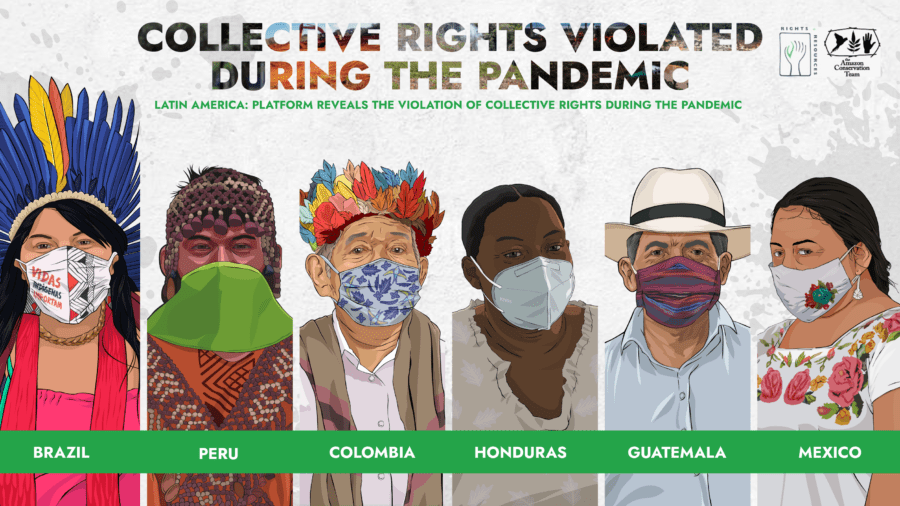
Over 1,900 Native communities impacted by extractive and infrastructure projects during the pandemic
Platform reveals the multidimensional impact of extractive and infrastructure projects in six Latin American countries during the first two years of the pandemic. Peru and Colombia are the countries with the most affected communities.
Lack of secure land rights has long been a key driver of war and conflict in Colombia. Since the formation of the new republic, the country’s land ownership has accumulated in the hands of a small number of elite families, leaving thousands of rural populations without access to land.
Blood in the jungle, we demand justice.
A new study from RRI documents the multidimensional impacts and multiplier effects of collective rights violations by extractive industries and infrastructure development in Latin America. The study tracks 102 cases involving Indigenous Peoples, Afro-descendants, and local communities.
On the 70th anniversary of the Universal Declaration on Human Rights, RRI’s Latin America Program Director reflects on the human rights challenges facing indigenous, Afro-descendant, and peasant communities—and how they and their allies are joining forces to take on these challenges together.
The world is turning its eyes toward Colombia as the new president, Iván Duque, takes office. Rights groups and peace activists are calling on the government to ensure that both the peace process and the country’s social leaders are protected.
Se firmaron dos convenios, uno entre el PCN y la Agencia Nacional de Tierras, y el otro entre el PCN y el Fondo de Tenencia…
New data gathered from Afro-descendant community councils and state records reveal that the Colombian government has failed to address 271 claims for collective Afro-descendant land rights—threatening cultural and environmental sustainability, the rights of Afro-descendant community territories as established by Law 70 of 1993, and the successful implementation of the peace accords. Although all 271 communities have submitted formal applications for collective land titles, the government has largely delayed recognition of their claims—in some cases for over a decade.
The assassination of Berta Cáceres, underscored the vulnerability of indigenous leaders, and in particular indigenous women leaders, who face violence and criminalization for defending their communities’ lands and livelihoods. A year later, the targeting of land rights defenders continues.
The Nobel Peace Prize, awarded to Colombian President Juan Manuel Santos for his efforts in ending a more than 50-year-long civil war, serves as a…
En Colombia, miles de campesinos, indígenas y afro-descendientes agremiados en la Asociación Nacional de Zonas de Reserva Campesina (ANZOR), la Organización Nacional Indígena Colombiana (ONIC)…
Como se ve en el Colombia Informa 28 de marzo de 2016 Las comunidades indígenas de América Latina y Colombia se niegan a perder su…
Autoridades indígenas no pudieron realizar pagamentos en el cerro El Alguacil porque los soldados impidieron el paso. Como se ve en Caracol Radio el 27 de…
Como se ve en NODAL el 9 de marzo de 2016 El líder comunitario y defensor de los derechos humanos William Castillo Chima, fundador y…
Como se ve en El Espectador el 6 de marzo de 2016 Luis Alberto Yace, de la ONIC, junto a Marino Córdoba, líder afro. / GustavoTorrijos-…

